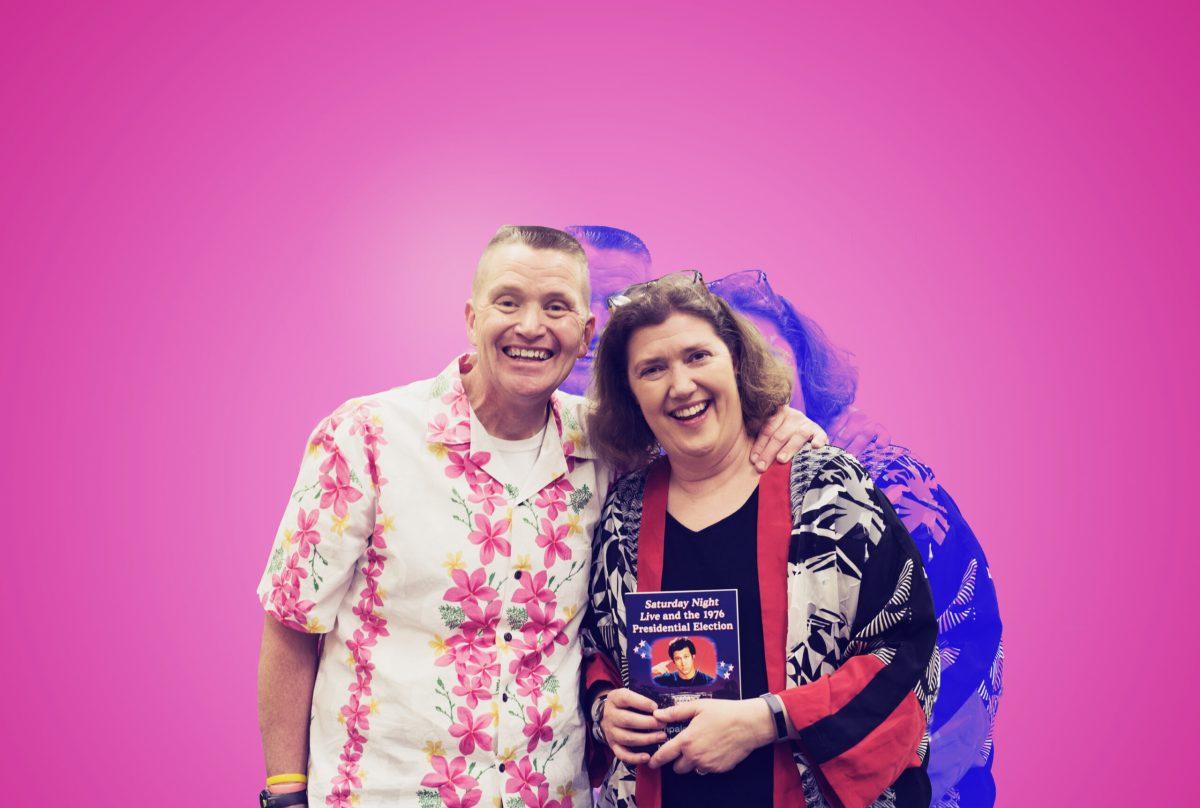
MU professors are not only contributing to research efforts on campus but also to global initiatives. Professors are writing books, making medical advancements for the treatment of cancer and receiving fellowships for their research efforts. To recognize professors’ work across campus, here are five examples of what MU staff have accomplished over the last academic year.
####“Saturday Night Live”
Bill Horner, professor and director of undergraduate studies for the political science department, and Heather Carver, department chair and co-director of writing for the performance program in the theatre department, recently published a book titled “Saturday Night Live and the 1976 Presidential Election: A New Voice Enters Campaign
Politics.”
In the book, the married couple discusses how “SNL” influenced the outcome of the election of 1976, when Jimmy Carter and Gerald Ford ran extremely close campaigns. With Horner’s political insight and Carver’s theatrical experience, the couple was able to argue that “SNL” causes its audience to perceive politics in a particular way and therefore impact American culture.
####Kemper Fellowship
Shelly Rodgers, a Missouri School of Journalism strategic communication professor, received the first 2018 Kemper Fellowship for Teaching Excellence. The fellowship is given to five MU teachers each year. Rodgers earned the fellowship through her contribution to research and knowledge of the strategic communications field, with an emphasis on the areas of science and health.
She has also trained 100 science, technology, engineering and math graduate students to present areas of research that they are interested in to public audiences using a more effective method. Rodgers advocates for and educates about interactive advertising and has co-authored 152 manuscripts that have been received at conferences as well as peer-reviewed journals.
####Juvenile justice reform
Douglas E. Abrams, associate professor of law, discusses the development of a model that will focus on rehabilitation and youth mental health needs, an ever-changing area of law, in the latest edition of “Children and the Law: In a Nutshell.”
Abrams, an expert in juvenile justice, family law, American legal history and constitutional law, said the book is a resource for practicing lawyers and parents alike. He also serves as vice chair of the advisory board of Missouri’s Division of Youth Services and said the division is a national leader for juvenile justice reform. More than 30 states have sent delegations to inspect and study DYS facilities, with an eye toward replicating the therapeutic approach followed by the “Missouri Model.”
####Research Reactor
On Jan. 26, 2018, it was announced that the U.S. Food & Drug Administration approved a Lu 177-based drug called Lutathera, which can be used as a treatment for specific types of tumors that occur in the gastrointestinal tract and pancreas.
Scientists at MU’s Research Reactor Center discovered, more than 15 years ago, possible properties within the radioisotope lutetium-177 that can be used to treat cancer. MURR is the only U.S. supplier of Lu-177 for use in Lutathera. The work being done by MU scientists demonstrates the performance of MURR, which has been a vital aspect to research at MU for more than 50 years.
Scientists from many different parts of campus also use the facility to to date artifacts, improve medical diagnostic tools and prevent illness.
####Social interaction
Assistant professor Mike Kearney at the School of Journalism published his research about the impact of social media on face-to-face social interactions. Kearney, along with his research team, conducted a long-term and a short-term study to test the theory that social interactions are declining with the use of social media.
The long-term study followed individuals and their social media use for two years. The results of the study show that social media use did not affect social interaction and that the social well-being of participating individuals had actually increased.
The short-term study followed the text messaging of participants for five days. The study concluded that social media that was used earlier in the day did not affect social contact in the future, but Kearney and the team did find that passive use of social media lowered levels of well-being if the participant had been alone earlier in the day.
_Edited by Morgan Smith | [email protected]_